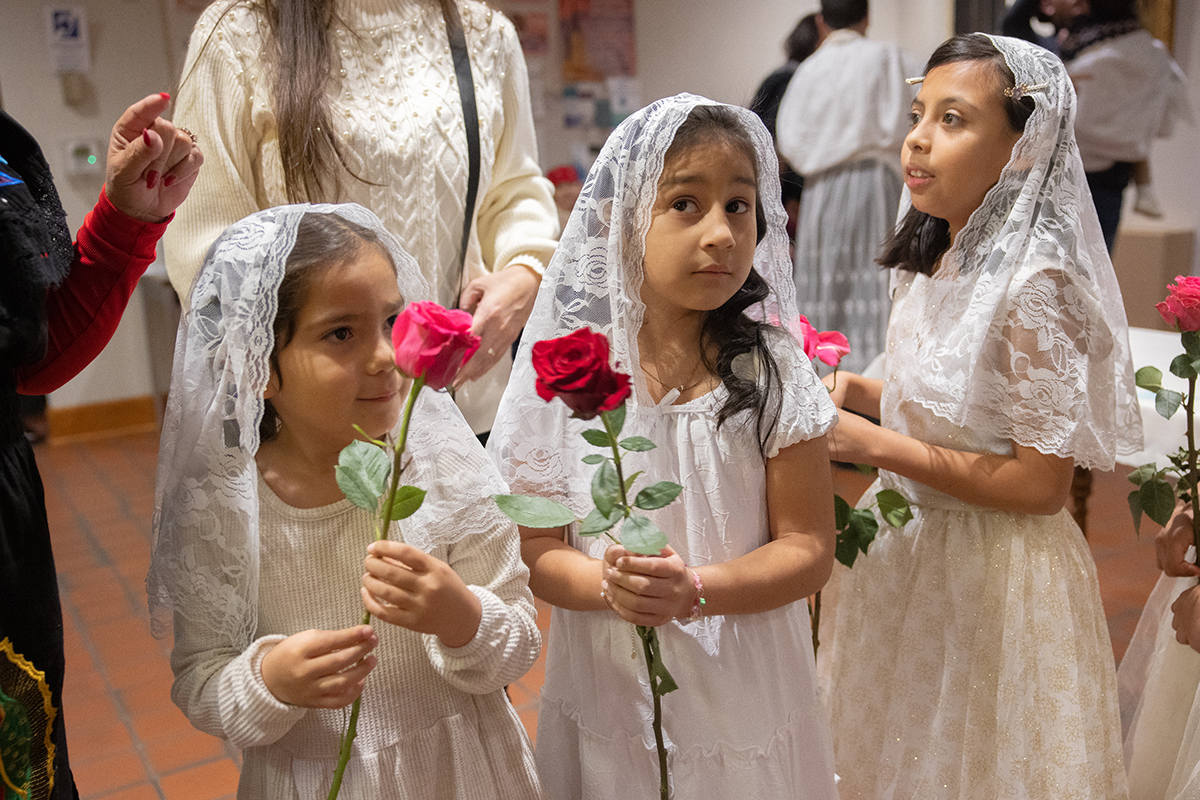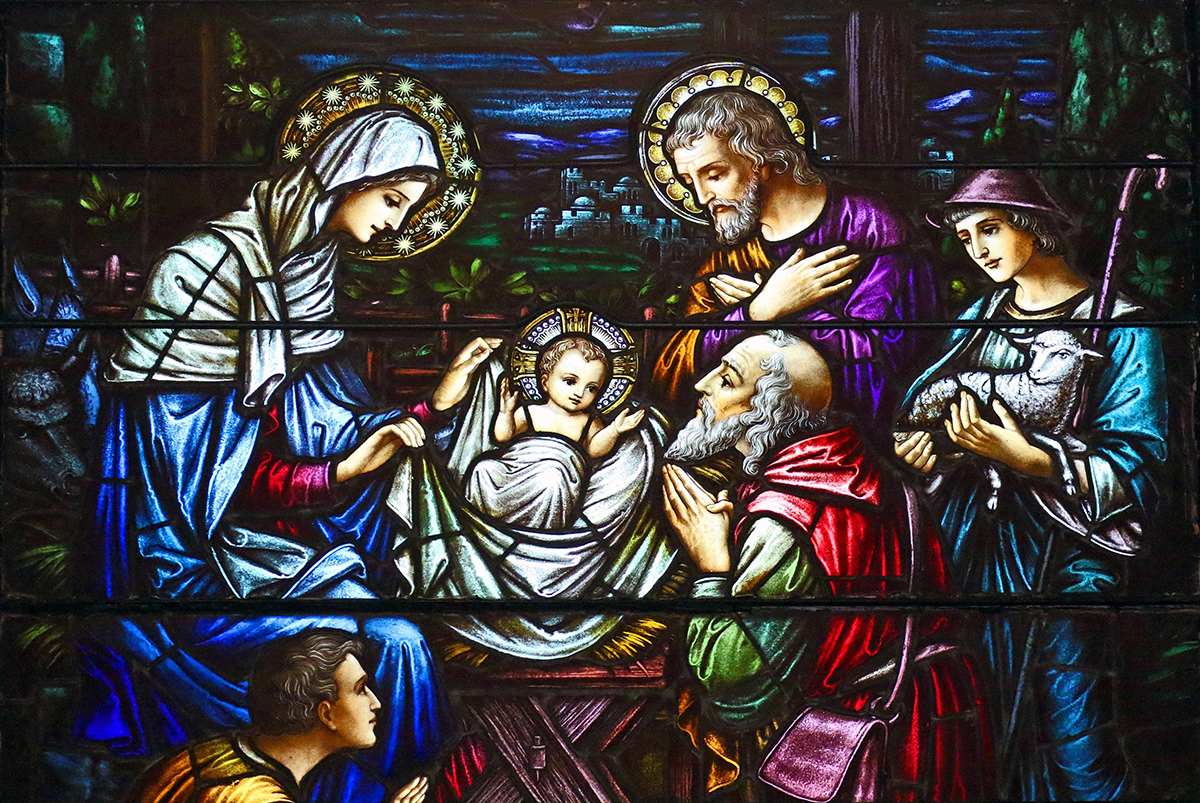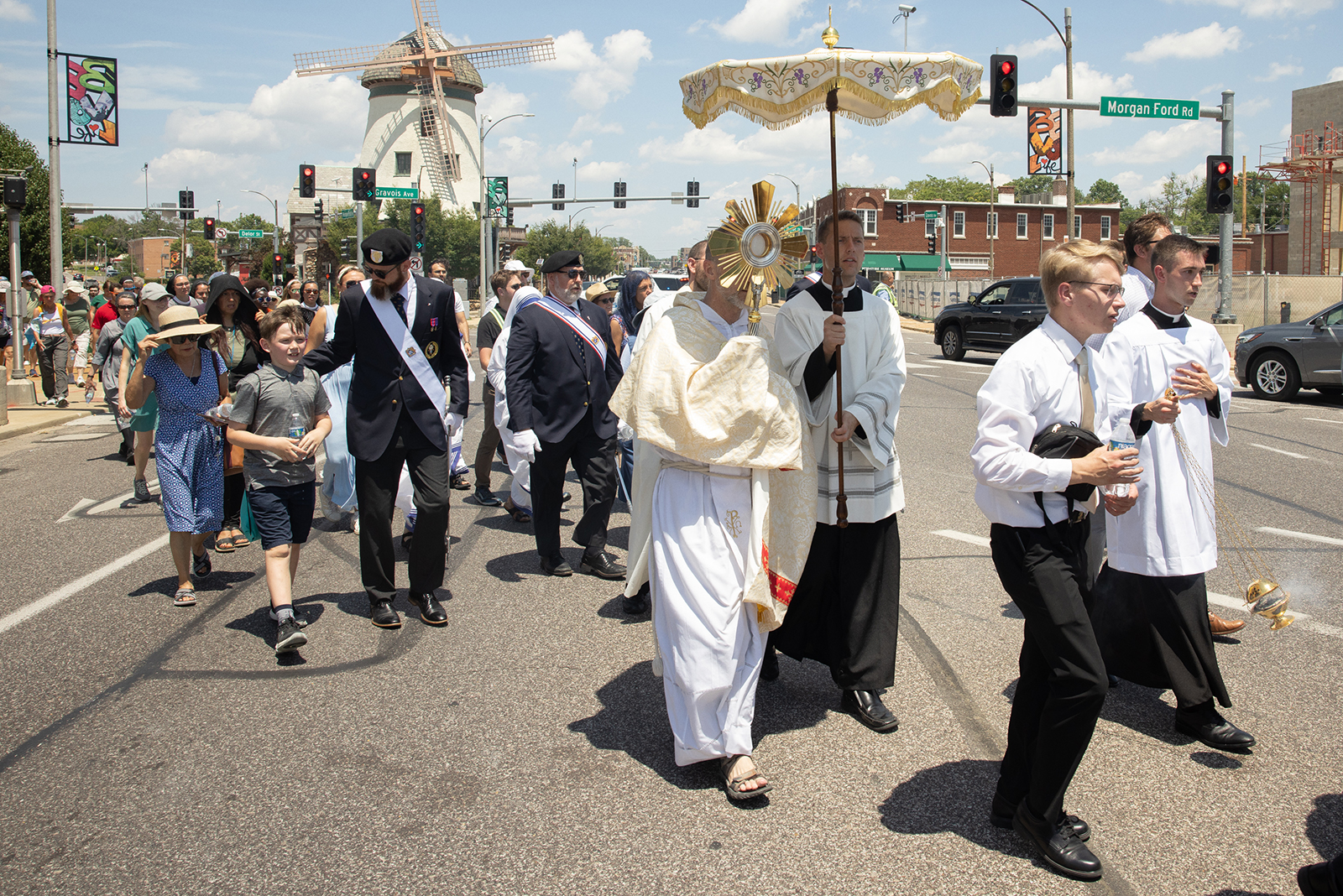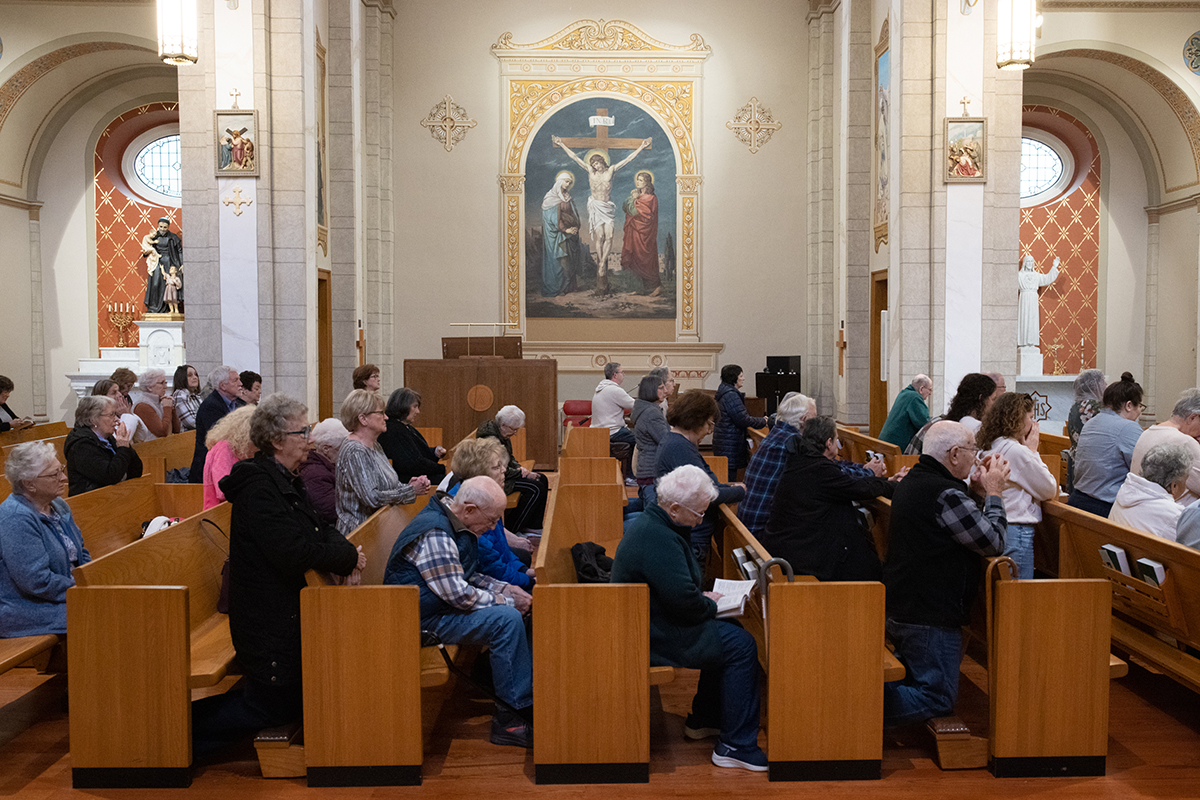HOUSE FOR LIFE
Franciscan Sisters of Christian Charity to provide a new ministry of prayer, hospitality in the shadow of Planned Parenthood
Sister Pat Sevcik opened the heavy wooden door, greeting one of her first visitors to the convent. “Welcome,” she said, offering a warm hug and smile that would put anyone at ease. “It’s so nice to meet you.”
Less than an hour after arriving in St. Louis, Sister Pat and her cohort, Sister Sue Ann Hall, already seemed at home, exuding a sense of hospitality to visitors rather than being the newcomers to town. In late August, the two Franciscan Sisters of Christian Charity made a seven-hour journey from their motherhouse in Manitowoc, Wis., to establish a new convent and ministry in the Archdiocese of St. Louis.
Sisters Pat and Sue Ann have a large task ahead of them. The focus of their ministry will be prayer and hospitality within their new neighborhood. But the ministry has a pointed purpose: to be a prayerful support to those who are working to make abortion unthinkable in St. Louis.
And they’re in a prime spot to do that. The convent, named after Our Lady of Guadalupe, patroness of the unborn, is directly across the street from Planned Parenthood in the Central West End. The ministry initially will be directed toward those who provide prayerful witness on the sidewalk outside the clinic, Sister Pat said.
“We want to be as welcoming and open to people who would like to pray, or sit at the table with us, and to encourage them to keep praying and stay active,” she said.
In late September, Archbishop Robert J. Carlson told people at a Mass and blessing of the convent that it’s been a dream of his for several years to have a place of prayer close to the abortion clinic — one of two Planned Parenthood locations in Missouri currently providing abortions. (A Planned Parenthood clinic in Kansas City, Mo., recently announced it would resume offering abortions.)
Praising the pro-life community’s commitment to being “ambassadors for life,” the archbishop noted that having a ministry of hospitality and prayer “is a beautiful way of expressing what the Catholic Church is about. We’re not here picketing, we’re here praying. And we know that it’s only through prayer that the evil of abortion is going to be overcome.”
The struggle against the powers of Satan still exists today, he said. “Do we need any clearer example than what exists across the street? I look forward to the day, when through the power of the Blessed Sacrament, that abortion clinic is closed. I don’t know if that will take a day, a month, a year or a decade. I know that through the prayer that will take place here, someday it will close.”
Franciscan charism
Sisters Pat and Sue Ann entered the Franciscan Sisters of Christian Charity in the 1960s in Manitowoc, in the Diocese of Green Bay, Wis. Sister Pat primarily served in health care as a nurse and in administration at several hospitals and other health care facilities in Wisconsin, Nebraska and Ohio. She also has been a director of mission in health care, as well as a directress of postulants for her community. In 2013, she returned to her the motherhouse after being diagnosed with cancer. She’s now in remission, for which she said, “I’m very thankful. I told God, ‘I’ll do my part if you’re willing to do yours.'”
Sister Sue Ann has spent the majority of her religious life serving as a homemaker in convents in Wisconsin, Ohio, Nebraska and California. For almost the last decade, she served as a volunteer in health care facilities in Ohio and Wisconsin. She has a reputation as an excellent baker, meaning that those who visit the convent will find an equal balance of spiritual and physical nourishment.
Sister Marysia Weber, RSM, director of consecrated life for the archdiocese, connected earlier this year with the Congregation of Major Superiors of Women Religious, in search of a religious community to live at the convent. The CMSWR’s superior general right off the bat recommended the Franciscan Sisters of Christian Charity. Several other communities responded with interest to an ad later placed in the CMSWR’s newsletter, but by that time, Sister Natalie Binversie, community director for the Franciscan Sisters, contacted Sister Marysia and told her to call off the search — they would take on the task.
“It was like the Holy Spirit had chosen you for this, you were clearly the ones right away,” Sister Marysia said. The community’s charism is focused on simplicity and charity, which she said, “is to communicate love for others. As you are going to be here in the presence of the Blessed Sacrament, you’re really going to communicate that to others in ways that they may not even be aware of.”
“The name Manitowoc is of course a Native American name, and it’s origin was Manitou — the great spirit,” said Sister Pat. “We are here totally trusting in the Lord to guide us.”
The power of prayer
In the chapel of the sisters’ convent hangs a framed image of Our Lady of Guadalupe. The image originally was a gift to Molly Kertz, former director of the archdiocesan Respect Life Apostolate, from Fred N. Sauer, who founded the Our Lady of Guadalupe Prayer Cenacle in the mid-1990s. Kertz recently donated the image to the sisters.
The cenacle regularly met in an office space above the former Reproductive Health Services abortion clinic on Euclid Avenue to pray and offer Masses. The image hung in Kertz’s office and after her retirement, at home, as a reminder of the power of prayer in the face of the evil of abortion. “It’s providential that the image should end up at the Franciscan convent, within the shadow of Planned Parenthood,” Kertz said. “She now resides here, in this blessed and dedicated place, casting her shadow of love and support upon all those in danger of abortion.”
Prayer and witness have been the hallmark of the pro-life community in St. Louis throughout the years. In the mid- to late-1980s, there were about half a dozen abortion clinics operating in the area. Today, there’s only one that remains in the St. Louis area.
“There are many stories of people who have prayed and persisted and now these clinics are gone,” said Deacon Sam Lee, a pro-life lobbyist who has been involved in the local pro-life movement since the 1970s. “The pro-life community has never given up praying, not only for the women and unborn babies who have gone to the clinic but also the clinics’ doctors and personnel. Many clinics have closed and many lives have been saved because of the prayers of faithful people, appealing to God to end abortion.”
Sister Pat Sevcik opened the heavy wooden door, greeting one of her first visitors to the convent. “Welcome,” she said, offering a warm hug and smile that would put anyone … HOUSE FOR LIFE
Subscribe to Read All St. Louis Review Stories
All readers receive 5 stories to read free per month. After that, readers will need to be logged in.
If you are currently receive the St. Louis Review at your home or office, please send your name and address (and subscriber id if you know it) to subscriptions@stlouisreview.com to get your login information.
If you are not currently a subscriber to the St. Louis Review, please contact subscriptions@stlouisreview.com for information on how to subscribe.





